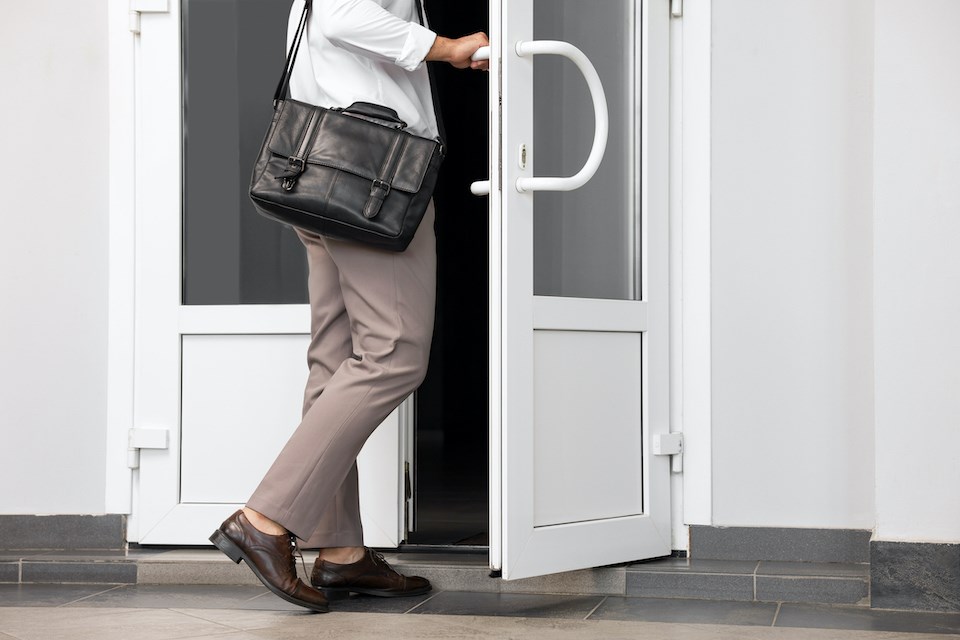Did your landlord come into your rental unit without providing you notice? You may want to dispute that with the Residential Tenancy Branch (RTB).
While the Residential Tenancy Act (RTA) states that landlords are permitted to perform monthly inspections on rental units, they aren't allowed to enter the unit for any reason.
Rob Patterson is a lawyer with the Tenant Resource and Advisory Centre (TRAC) who says that many landlords abuse their right to enter a tenant's home. In some cases, they might start entering a unit more often to intimidate tenants.
"Sometimes they will do it for the purpose of harassing or intimidating tenants to make them want to leave," he told V.I.A.
Even if a landlord has a reasonable reason to enter a unit, having someone unexpectedly enter your home can be frightening or disturbing.
"Getting out of the shower and the landlord is there with a couple of contractors is unsettling," he said.
For this reason, landlords are expected to provide at least 24 hours' notice before they enter a person's dwelling. They need to provide notice in writing and in a place where the person is likely to see it. This can be done via mail, posting the notice to a tenant's door, or leaving it in another "conspicuous place."
However, landlords should be careful how they interpret the RTA.
Leaving a notice to enter a unit in a place that might get missed by a tenant isn't providing them with proper notification. For example, posting a notification to enter a unit in a shed by a house may likely get missed, so it isn't a good place to leave it. Delivering the note to the person directly or posting it on the door is unlikely to be missed.
The notice must also provide the date and the time of the entry, which must be between 8 a.m. and 9 p.m. unless the tenant otherwise agrees.
Can a landlord enter my unit without providing notice?
Landlords may enter the unit without notice if they have an emergency reason that will "protect life or property."
They may also enter the unit if they have been granted the right to by the RTB. However, they would need to obtain an order to do this first.
A landlord could also enter a rental unit if they need to "provide housekeeping services" agreed to in the tenancy contract or if the tenant has abandoned the property, according to TRAC.
Patterson says landlords may abuse the law because it is vague. For example, the RTA doesn't stipulate the number of times a landlord may enter a unit. They could enter the unit once a week or as much as every day if they felt it was needed. And while they must have a reasonable purpose for entering the unit, the definition of "reasonable" isn't mapped out in the act.
But the tenancy lawyer says tenants shouldn't allow their landlords to invade their privacy.
"If the landlord keeps coming in, they can't just do daily inspections," he noted, adding the vague rules make it "challenging for tenants to push back."
There also aren't clear rules about what happens during a unit inspection.
Tenants should keep in mind that there are exceptions to this perspective. If the building has an ongoing leak, it may be reasonable for the landlord to enter the unit until the issue is resolved.
"It is not following the letter of the law, it's following the spirit of the thing," he said.
What steps should I take if my landlord refuses to follow the advice?
TRAC says tenants should provide their landlords with a written notice that spells out why they must provide notice before entering their unit. If they do not respect the request, a tenant may apply for dispute resolution through the Residential Tenancy Branch (RTB) — especially if their landlord continues to enter illegally:
TRAC outlines the following orders you can apply for in this situation.
- an order that your landlord follow the law;
- an order giving you permission to change the locks and keep the only key;
- an order that sets conditions on when your landlord is allowed to enter; and
- an order that your landlord pay you monetary compensation.
Patterson says he's never helped a tenant get an order for their rental unit's locks changed and it can be "challenging to know when to push for those things." But it's something that an individual might need to do if their landlord is invading their privacy.
"It seems like a small issue...but put yourself in the shoes of the tenant. It has an extreme effect on the feeling of safety and security," he explained.
If a landlord makes you feel unsafe or threatens you, call 911 immediately.



